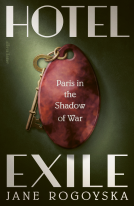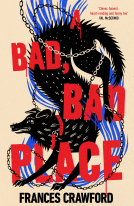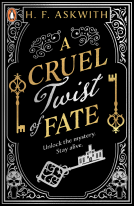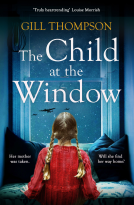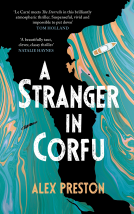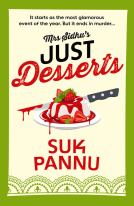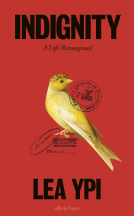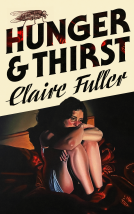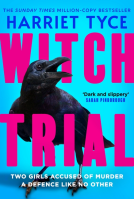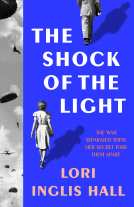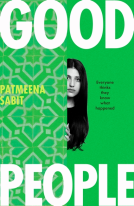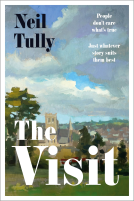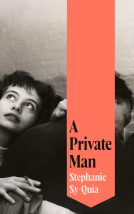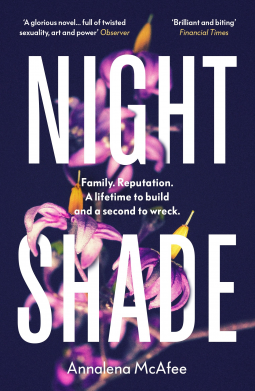
Nightshade
by Annalena McAfee
This title was previously available on NetGalley and is now archived.
Send NetGalley books directly to your Kindle or Kindle app
1
To read on a Kindle or Kindle app, please add kindle@netgalley.com as an approved email address to receive files in your Amazon account. Click here for step-by-step instructions.
2
Also find your Kindle email address within your Amazon account, and enter it here.
Pub Date 5 Aug 2021 | Archive Date 31 Aug 2021
Random House UK, Vintage | Vintage
Talking about this book? Use #Nightshade #NetGalley. More hashtag tips!
Description
'Nightshade is a glorious novel... full of twisted sexuality, art and power' Observer
Family life. Reputation. They took a lifetime to build and a second to wreck.
Eve Laing, once the muse of an infamous painter, is now — forty years later — an artist herself. But she has sacrificed her career for her family and she resents the global success of her old college roommate. When Eve embarks on her most ambitious work yet, she takes a wrecking ball to her comfortable life, jettisoning her marriage for a beautiful young lover, a drifter half her age, who seems to share her single-minded creative vision.
This brilliant and timely novel explores sexual politics and asks if the true artist must relinquish the ordinary human need for love and connection. Can the creative urge be the most destructive — even deadliest — impulse of all?
'Brilliant and biting' Financial Times
Available Editions
| EDITION | Paperback |
| ISBN | 9781529112252 |
| PRICE | £8.99 (GBP) |
| PAGES | 256 |
Average rating from 28 members
Featured Reviews
 Andrea H, Book Trade Professional
Andrea H, Book Trade Professional
My thanks to Annalena McAfee, Random House and Net Galley for the ARC of NIGHTSHADE.
I was holding my breath the whole time I was reading this incredible novel, so worried for artist Eve Laing as she's walking the dark streets of London alone and also as she walks towards disaster in her personal life. The reader is placed in the position almost of watching her through a lense. As a woman of a similar age I kept saying no no no, what are you thinking, but...she did it anyway. Compelling and helplessly stomach churning. I loved it.
A chilling portrayal of art and the passion that overtakes artist Eve’s life. The story begins with Eve taking a walk across London one night and contemplating her life and the actions that led her to this point. A younger lover, a family ripped apart....was it worth it?
Eve is a character with seemingly pent up anger and you find yourself in the position of not knowing whether you are supposed to like her or not. Or is that part of the story as it evolves?
This book was a little of a slow burner at first but the pace and intensity definitely builds towards the end.
We see the story build in flashbacks and covers some issues that many in society will recognise.
I enjoyed the ending as it wasn’t how I expected it. I love it when those conclusions just creep up on me!
You will likely want to Google Eve to see if she is a real person!
Thank you to Random House UK, Vintage and Netgalley for an ARC of this story in exchange for my honest review.
 Sam W, Reviewer
Sam W, Reviewer
Eve, a middling artist, gives in to temptation. Eve starts an ill advised affair with Luka. He is her assistant and half her age. Eve is, frankly, a terrible person. She embodies many of the seven deadly sins and has no empathy. Eve's treatment of her daughter, Nancy, is disgusting. Her treatment of her two old friends, Mara and Wanda is vile. Amusingly, Eve has no idea of her flaws. She has no idea of the damage she has done.
Nightshade is a great revenge novel. Eve's monstrous ego blinds her to the long game someone else is playing. It also deftly skewers the relationship between the art world and the super rich. Eve has nothing but contempt for it's largely fuelled by her jealousy at failing to make the cut.
Firstly may I thank the publishers for an advance copy of this book.
This is a very different novel to those that I mostly read, but one that I have enjoyed immensely
The story is told by Eve a 60-year-old artist and is told in retrospect while she travels across London firstly by Tube and then on foot. Eve has taken a lover half her age and brought to an end her marriage to a successful architect. During this journey, Eve reflects on her life from her teenage years as an aspiring young artist through her marriage and onto her affair with the younger man which consumes her life.
It is very well written and held my attention throughout Eve's thoughts and opinions about her former friends in the art world and her family are sharp and cynical and at times witty.. This is a story not only about the breakdown of a marriage but also the gradual mental breakdown of Eve herself.
A book I am happy to recommend.
 Andrew B, Reviewer
Andrew B, Reviewer
If you need your fictional characters to be likeable, to be the sort of people that you can “root for”, then absolutely do NOT read Nightshade by Annalena McAfee. If, on the other hand, you want characters to be interesting, complex, and perhaps even illustrative of deeper themes to do with the tension between art and life, then read on. I’ve got a good one for you.
Eve is not likeable. Not at all. She’s cruel, judgmental, self-absorbed… and, as the novel progresses, we come to realise that she’s treated her friends and family in quite despicable ways.
And, to make things more challenging, Nightshade is written from a tight third-person viewpoint. So we spend all 300 pages in the company of this cruel, judgmental, self-absorbed, over-privileged London artist, seeing the world through her cold cynical eyes, putting up with her mean-spirited jibes at everyone around her, marvelling at her enormous capacity for self-pity and her inability to feel a jot of compassion for others.
But then, just as I thought the novel was going to be difficult to finish, I began to realise that it was heading in a very interesting direction. Annalena McAfee has immersed us in this person’s head, I think, because she wants us to explore what it looks like when the striving for artistic success begins to take over from life itself.
This is why unlikeable characters are important in literary fiction. They allow us to explore the mistakes and missteps, to see the consequences of a certain life choice—in this case the prioritisation of artistic success over all other aspects of life—played out to their fullest extent.
The beauty of a tight third-person narrative is the ambiguity over who is actually telling us this story and what they really think of the events. It’s easy to start to equate author with narrator and think, “Wow, Annalena McAfee has some pretty cynical judgments about young people, social media, artists, homeless people, and pretty much everyone.” But no, it’s Eve who dismisses her daughter as a “social media virtue signaller”, it’s Eve who insists on calling her friend’s transgender son by his female birth name, it’s Eve who refers to “a benighted corner of North Africa”. And yet this is not Eve’s story either. It’s told in the third person, but through Eve’s eyes.
If this were a straight first-person narrative, I think it would be easier to see Eve as an unreliable narrator early on, and much of the pleasure of the book would be lost. But it’s not—it can’t be, for reasons that become clear at the end. It’s written in the third-person voice that we’ve often come to associate with distance and objectivity, but which in Nightshade is as unreliable as it gets.
Essentially, we’re being tricked into seeing things from Eve’s point of view, grudgingly accepting her breezy judgments on the people around her. And then we start to realise that it’s all false. Everything. We’ve been seeing the world through the eyes of a narcissistic sociopath, and we need to rebel against this narrative if we’re going to discover the truth.
For example, Eve is brutally critical of her daughter, the “gluten-intolerant, humbug-tolerant liberal” and “full-time victim with a borderline eating disorder”. She dismisses her as being just like all the other “social media virtue signallers” who “trumpeted their concerns for the planet even as they trashed it.” She even criticises her appearance regularly:
“Nancy’s hand was cold and her nails were lacquered a sickly stone grey. What was she wearing? Yellow had never suited here – it gave her a jaundiced cast.”
But, in places, the narrative of the spoilt, ungrateful daughter starts to fracture, and we start to realise that perhaps Eve was actually a terrible mother. Here’s a typically self-congratulatory description of how Eve responded to her daughter’s early drawings.
“Eve, for all her flaws as a mother, always credited her own daughter with a degree of sophistication and refused to pander to her. If Nancy’s drawing was crude or indecipherable, Eve would say so. This tougher, more honest school served Nancy well. She soon realised art of any sort was not for her.”
This is quite typical of the narrative throughout Nightshade. Eve’s parenting is breezily presented as positive (“credited her own daughter…”, “served Nancy well”), and yet it hits us with the sudden horror of a young artistic sensibility being utterly crushed.
And then, when Nancy actually appears in Eve’s studio and starts speaking and acting by herself, she is not the spoilt, whiny hypocrite we’ve been led to expect. She’s emotionally mature, and she makes a selfless and quite compassionate attempt to save her parents’ marriage (and to save Eve herself from self-destructing). And then you start to go back over the book, and you think, “Maybe Nancy is constantly in therapy not because she’s whiny and self-absorbed but because her mother was a monster.”
As readers, we need to do a lot of reassessment towards the end of the book. Maybe her godson drifted into an unsuccessful, unhappy life not because he “didn’t have the backbone” but because he was betrayed by an adult he looked up to. Maybe her old artist friend Wanda really was traumatised by Eve stealing two of her boyfriends, even though the narrative presents it all as justified because Wanda’s relationships with the men were not that serious. Maybe her two suicide attempts were not “shams” or the results of her “monstrous self-pity” but an expression of real pain. Maybe getting Mike drunk after a year of sobriety and then making out with him at Wanda’s performance art was not “Eve’s duty, as a serious artist, to test the hypothesis”. Maybe it was unspeakably cruel. Maybe we can’t trust anything we’ve read, and we need to think about it for ourselves, and maybe that’s a good thing for any reader to do.
Nightshade works structurally because of this clever undercutting of the narrative, and it works thematically by exploring some fascinating ideas about art and life.
Should art be cut off from life? Eve certainly thinks so. She wants art to be pure, to be about beauty and aesthetics, about “purity of purpose”. She paints incredibly detailed flowers, and she views it as “dismayingly crass” when her young boyfriend Luka asks if her new work on poisonous flowers has any connection with the recent Russian poisonings:
“No it does not,” she said firmly. “Because then it would be journalism, not art.”
And it’s not only art that should be cut off from life, but artists themselves. Eve’s old mentor/seducer, Florian Kiš, used to say that when you start to paint, the studio is crowded, not just with the sitter and the assistants, but also with the ghosts of your family, friends, enemies, critics, etc.
“Then you start to paint and they all begin to leave, one by one, shutting the door gently behind them until you’re left standing there, finally alone – just you and the work.”
As someone who’s been battling with the creative process for a long time, I can understand that. You do need to carve out time, to be solitary, to refuse invitations, to lock yourself away in a small room and tell people you love that you’re just not available for a few hours.
But then, when you’ve finished the work, you need to let the world back in. Kiš acknowledged this:
“And then, if it goes well, you leave the studio too, and shut the door behind you.”
This is the part that Eve doesn’t seem to get. For her, it’s all about the work, and friends and family are collateral damage or inconveniences to be overcome. After Nancy’s birth, “in a retrospective rage”, she insisted that her husband Kristof have a vasectomy:
“Never again. From now on, she would focus on work.”
She is harshly judgmental of her old friend, Mara, who “succumbed” to motherhood. And she closes herself off not only from friends and family, but from the wider world too. Other people, whether passers-by or remembered acquaintances, seem to exist for Eve only as sources of ridicule or fodder for cynical witticisms.
There are several scenes in the book where Eve encounters homeless people, and she just ignores them—not even a refusal or a shake of the head. She doesn’t even acknowledge their existence as human beings. Only at the very end, when things have changed for her and she’s perhaps getting a spark of self-awareness, does she stop and chat to a homeless woman in a humane way. Because yes, Eve, maybe their pain is real too. Maybe it’s all real, all the things you’ve dismissed because they’re too painful to deal with. Maybe their poverty is connected to your wealth, their under-privilege to your over-privilege. Maybe it’s all connected, and maybe you were the problem all along, and your cynical barbs were a way of deflecting that.
The way Eve cuts herself off from everyone in her pursuit of creative fulfilment reminds me of something Stephen King wrote in his memoir/writing book On Writing, when he talked about recovering from being an alcoholic and almost destroying his family. As a symbol of his new priorities, he replaced his huge old desk with a smaller one in the corner of the room: “Put your desk in the corner, and every time you sit down there to write, remind yourself why it isn’t in the middle of the room. Life isn’t a support system for art. It’s the other way round.”
Nightshade is also a book about success and the striving for it. Here’s yet another staggeringly cruel thing that Eve says about her daughter (or, to be more accurate, that the narrator says through Eve’s viewpoint):
“Of all the curses that might be visited on one’s children, the cruellest was mediocrity.”
Anyone with a normal job, in Eve’s eyes, falls into the category of mediocrity. So it’s a curse that afflicts the majority of people on the planet. But those people don’t matter, of course—not to Eve. What matters is that her daughter be brilliant, successful, admired, and she’s disappointed in her for “failing”. Her godson Theo and others also get tarred with the “mediocrity” brush.
But people more famous than Eve also come in for some bitter criticism. Her old friend Wanda, who is wildly successful, is “despicable”, “a fraud”, “a sham”, and a whole lot more. When referring to Wanda’s fame, Eve recalls Florian Kiš’s old dictum that fame was “a cheap trick of the light.” But she hates Florian Kiš too, and the way everyone keeps asking about him instead of her.
Eve’s predicament—contempt for those below her, hatred of those above—reminds me of a quote I love from the Tao te Ching: “Success is as dangerous as failure. Whether you go up the ladder or down it, your position is shaky.”
Eve expresses a lot more opinions about art throughout the book, as well as about feminism, sexuality, and a lot more. And the good thing about the way Nightshade is written is that we get to evaluate and then re-evaluate them just as we re-evaluate the events of the book. Do we agree with Eve or reject her position as our trust in her crumbles? Let the reader decide!
There’s a nice recurring image in Nightshade that I think ties together a lot of what I’ve been saying in this review. It appears in the opening scene of the book, when Eve is basically stalking her estranged husband, standing in the dark west London street and looking up at the brightly lit windows of the houses and the tableaus of life inside. In each house, she finds something to criticise within the tight confines of the illuminated frame.
Later, when she’s at a Tube station, a similar image recurs:
“The train rattles past, each window a bright frame of film reel with its own starring cast and complicated backstory, before creaking to a halt.”
And later still:
“A night bus flashes past, each lit window framing an Edward Hopper profile – thumbnail studies of urban loneliness.”
This is Eve’s fatal flaw. She reduces people to simple thumbnail images, like slides in a carousel. She stands back and watches them from the outside, from the darkness, forever the critical observer. If she could just plunge in and relate to people as people, as a daughter, a husband, a friend, and put aside the judgments and the need to paint a picture of them for the critical appraisal of an external viewer, then maybe she would have had a happier life. Maybe she would have been more likeable too, and some readers would have been happy to find somebody to root for. But it wouldn’t have been half the novel.
I think, for Nightshade to work, Eve needed to be just the way she was.
Nightshade by Annalena McAfee is an engrossing story of artist Eve who became known for an artwork completed in her early career, as well as her relationship with a much older renowned painter.
As she journeys through London returning to her studio, Eve contemplates her life's achievements and relationships with her art graduate contemporaries and her significant lovers. We also learn about Eve's latest project which provides a new lease of life to her artistic career as private collectors bid for her work.
I was hooked after the first few pages; Eve's obvious conflict with her husband Kristof, the genuine supporting characters but I didn't see that ending coming at all!!
Readers who liked this book also liked:
Francesca De Tores
General Fiction (Adult)
